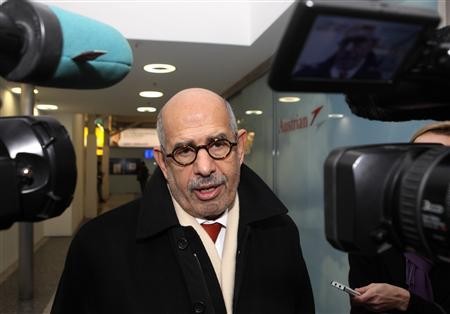Only a few benefit from unrest in Egypt

Today will mark the ninth day of protests in Egypt, a country experiencing a political revolution which some fear could spark civil unrest throughout all of North Africa and possibly the Middle East. The Western media is handling the unfolding events as if they were part of a sudden and unforeseen crisis, one that needs our careful attention and perhaps our military hand.
The truth is that this populist revolt was predicted by many in the Arab Muslim world, even before an American military presence in the Middle East became common place. The possibility actually exists that the ousting of Mubarak in Egypt is not the byproduct of a faltering U.S. dollar or rising food prices; rather, it's the realization of a greater geopolitical strategy which serves the status quo.
First, let's explore the historical context of this discussion. North Africa and the Middle East haven't known peace since the British-manufactured “Arab Revolt” led by Lawrence of Arabia fractured the Caliphates of the Ottoman Empire and transferred power either directly to agents married into Western royalty– as was the case in Libya and Jordan – or to preselected client dictators who could easily be persuaded to tow the line. This power structure hasn't changed much since WWI, nor can one expect it to anytime soon. You'll notice that Amman and Tripoli have yet to be singed by this revolutionary wildfire, though stirrings appear to be potentially brewing in Amman.
Evidence exists implicating the United States as complicit in the overthrow of the current Egyptian leader. But how is this to be believed when Mubarak has been (for all intents and purposes) a servant of our biggest ally in the Middle East, Israel? Well, let's see who benefits from this chaos. Israel will surely be painted as a potential martyr by Zionists if the Arab world gets too unruly. Not only has the heat already been taken off Israel's internationally condemned, yet unencumbered settlement expansions in occupied Palestine, Tel Aviv might benefit further with the option of a preemptive strike if the unrest spreads. No doubt American and U.N. Forces will be called upon to facilitate “re-stabilization.” Incidentally Mubarak is safe in Tel Aviv where he has been given asylum.
The main bonus of this revolution to the Establishment will be the prepackaged solutions the West has planned in the form of “regime change.” Extremist groups who ostensibly represent “the people” have the limelight now. What is less talked about are the “outside” elements acting to foment clashes between police and protestors such as the “German/Swedish snipers” caught in Tunisia or the looters and jail breakers in Egypt found wearing government ID badges. By suppressing this information, it won't be hard to convince a coalition of powers that a reformation of political and then social structures in North Africa is a necessary component for peace and stability in the region.
Already “Al Qaeda” is being displaced in popular discourse with the term “Muslim Brotherhood” – an organization whose links to the CIA, Mossad and MI-6 are too well documented for it to be taken seriously as a fundamentalist group. The extensive exposure the opposition party has received by the major media outside a shared social context can only work to heighten the already simmering Islamophobia the West has embraced, and it doesn't bode well for Muslim communities struggling against genuine autocratic oppression.
As the Tunisian and Egyptian people scramble to depose their puppet dictators, it seems the script written by the U.S. and Israel doesn't call for a critical look by the opposition at who shall replace them. One name being touted as a potential savior for Egyptians is that of Mohamed ElBaradei. The same ElBaradei who helped facilitate the 2003 U.S. Invasion of Iraq using his position as director of the IAEA. The same ElBaradei who, in April, gave a speech at Harvard saying he was “looking for a job” preferably as an “agent of change and an advocate of democracy .” Before one gets carried away with romantic notions that Baradei could represent the common men and women of Egypt, don't forget he is currently a trustee of the International Crisis Group, sitting alongside Zbigniew Brzezinski. George Soros sits on its executive committee.
While the bait-and-switch con for a corporatist leader is executed in Egypt, the domino effect to ensue will sow enough discord abroad that the perceived threat of upheavals here at home will further tighten the noose on social networking freedom. The events in Egypt provide an all too convenient pretext for American politicians from the left and right who want to exercise the same power over the internet that autocrats in North Africa currently enjoy. With Egypt taking down its internet and China banning internet searches pertaining to Egypt, a clear psychological message has been sent to the American people that our access to the internet is contingent upon our behavior. Remember, Lieberman would love more than anything for DC to model its internet policy off Beijing's.
Are there any new lessons to be learned here? Sure. In the words of an anonymous blogger:
“think tanks and intelligence agencies based in Western countries are bigger sources of mayhem than the unarmed protestors on the streets.”






